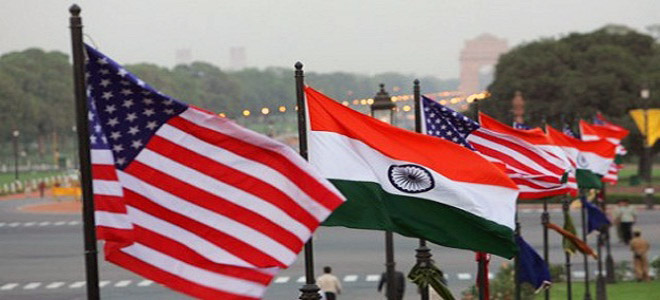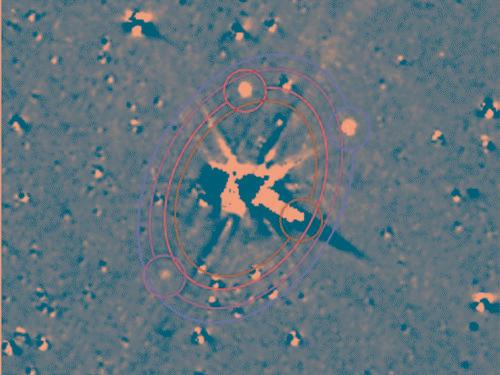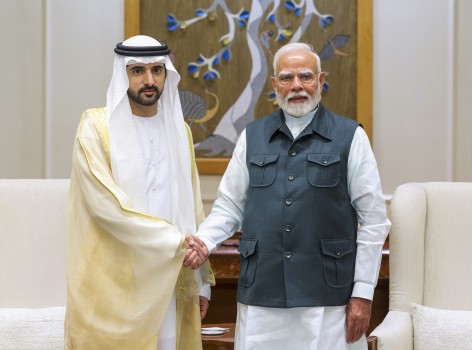
A file photo.
WASHINGTON (PTI): The three defence agreements recently proposed by the US to India are aimed at facilitating better military co-operation and does not infringe upon the country's sovereignty or provide unapproved access to foreign military assets or IT systems, the Pentagon has said.
The defence agreements -- called foundational -- are used by the US to facilitate defence cooperation with foreign military partners, senior defence officials said.
These are routine agreements and to date the US has signed more than 100 such agreements with its partner countries around the world.
In an interaction with Indian journalists based here, three senior defence officials said the proposed foundational agreements are aimed at facilitating the exchange of classified information and sensitive technologies between the two countries.
It is also aimed at facilitating cost-savings when procuring and maintaining US-made military systems; and reduce logistical challenges to bilateral defence relations, said the officials on condition of anonymity.
Of the four foundational agreements, General Security Of Military Information Agreement (GSOMIA) has already been signed in 2002.
After the historic India visit of the US President Barack Obama in January this year, the Pentagon had submitted drafts of two other foundational agreements -- Communications and Information Security Memorandum of Agreement (CISMOA); and Logistics Support Agreement (LSA) to the Indian Embassy here, which is now being reviewed by the Indian Government, officials said.
The draft of the fourth foundational agreement -- Basic Exchange and Cooperation Agreement (BECA) for Geospatial Intelligence has been submitted by the US National Geospatial-Intelligence Agency (NGA).
Officials said they have received requests for further queries from the Indian government on all of these agreements and there is no time line on the signing of these agreements.
"We are not putting any pressure on India. It's up to India to decide," one official said.
"These agreements represent a confluence of interests in safeguarding sensitive information and facilitating enhanced cooperation," officials said, adding that none of these agreements "infringe upon Indian sovereignty".
These foundational agreements, defence department officials insisted, "do not limit" procurement flexibility.
"Foreign governments are not obligated to procure communications equipment, products, data, or services solely from the US," he said.
They further said that these agreements "do not" provide the US with unapproved access to foreign territory or facilities; or to foreign military assets or IT systems.
According to the officials, CISMOA permits secure communications interoperability between partners during bilateral and multinational training exercises and operations.
"It enables friendly partner governments to receive both secure communications products and information on approved equipment for these purposes," the official said.
LSA facilitates the provision of logistical support, supplies and services between the US and partner countries on a reimbursable basis.
This may include food, water, transportation, petroleum, clothing, medical services, repair, maintenance services and other logistical items and services, the official added.
"An LSA agreement would allow for the purchase by establishing a value for the purchase and the terms for payment, which could be replacement-in-kind or an equal-value exchange," the official said.
According to the defence official, BECA allows for no-cost exchange of unclassified and controlled unclassified geospatial products, data, and services between India and the US National Geospatial-Intelligence Agency.
This agreement would enable India to obtain a range of geospatial products and training.
Officials said GSOMIA, which has already been signed, establishes the intent of the US and the partner country to protect each other's classified information.
"The implementation of GSOMIA represents a deepening of the security relationship with the US and is a strong indicator of trust in the other," officials said.
The US would also conclude implementing arrangements to GSOMIA concerning Industrial Security, officials said.
These implementing arrangements for Industrial Operations, establish requirements that apply to contracts, subcontracts, pre-contract negotiations, or other government-approved arrangements with industry involving classified information.
"They may allow for greater cooperation on classified programs between the signatory nations. The Industrial Security Arrangement should be in force prior to commencement of any classified co-production or co-development activities with foreign industry," the official said.
Many of the US' most capable military platforms contain sub-systems of classified hardware, software, or supporting information.
The GSOMIA permits the US to offer and transfer these items as a complete fighting system.
"Thus, advance missiles and electronic warfare protective suites can be offered with US cutting-edge combat aircraft, permitting the acquisition of a more capable platform," the official said.
 Next Article
Next Article












The Indian Air Force, in its flight trials evaluation report submitted before the Defence Ministry l..
view articleAn insight into the Medium Multi-Role Combat Aircraft competition...
view articleSky enthusiasts can now spot the International Space Station (ISS) commanded by Indian-American astr..
view article